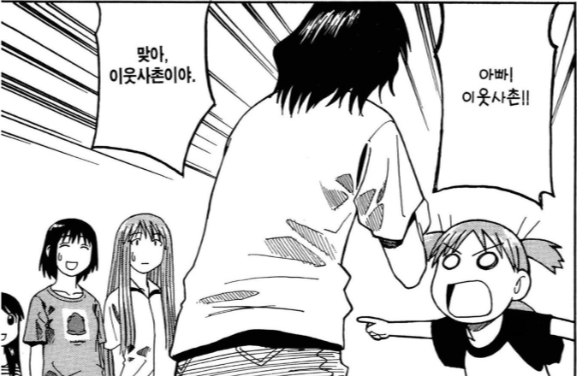ㅁ - m
ㅐ - e
ㅣ - i
매미 - memi
맴 - mem

ㅁ - m
ㅐ - e
ㅣ - i
매미 - memi
맴 - mem

I probably would at least start if I could find a good (fun?) flashcard program to teach me Hangul. I know that there are consonants and vowels and they all group together, but I honestly think flashcards w/ audio is the way to go over learning how they combine and the pronunciation rules.
But everything wants to teach me words, the logic behind how things combine, or they
don’t have audio. And I’m not allowed to make my own anki deck ![]()
I would honestly say that hangul is one of the easiest parts of Korean. Contrary to Japanese, it’s all extremely logical.
ㅏ aㅑ ya / ㅗ o ㅛ yo / ㅓ eo ㅕ yeo / ㅜ u ㅠ yu /ㅐae ㅒ yae / ㅔ e ㅖye /ㅣi / ㅡ eu for the vowels. Oh how I love hangul. See the pattern yet?
Then there are the consonnants, and they are similarly pretty simple in shape. As for pronunciation, once you learn the basic pronunciation of the consonnants and vowels, you’re done. There are a couple sound change rules, but you’ll get those later (either by learning them specifically or mostly through input).
There are a lot of introductory videos to hangul if you’re interested. This one is nice, but there are many others.
I agree, but you still have to memorize what is what sound, and at that point you may as well just brute force the whole thing, imo. I’ve watched one or two videos, but at the end of the day, you still need to do some memorization. There’s a limit to how far logic can get you.
It’s been literally decades since I learned kana, but it took maybe a week to learn each with (paper ![]() ) flashcards. I’d honestly just rather learn them all by rote and then notice the patterns once I’ve leaned them than the other way around.
) flashcards. I’d honestly just rather learn them all by rote and then notice the patterns once I’ve leaned them than the other way around.
Also, sorry all for so much ot chatter ![]()
I would say hangul is much easier to learn than kana. You definitely don’t need 1 week / letter, 1 or 2 weeks total is probably enough to learn the basic pronunciation, writing, and how to combine letters to form syllables. The writing alone will save you a lot of time compared to kana, as it was specifically created to be easy to write: just long lines and shorter lines (or dots, if you’re feeling old-school).
And I agree with you, in this case I think you’re better off brute forcing the whole thing. It won’t take long anyway. I don’t have a good flashcard program to recommend since that’s not how I prefer to learn, but if you’re looking for audio this Korean Word Structure and Basic Letters has been pretty useful to me.
As far as learning Korean… well, with your level of Japanese, grammar should really not be a problem. So what I’m saying is:
I finished the week 1 reading, and… well, just a quick look at the vocab sheet will tell you, I have a much harder time understanding Ayase’s formal speech than Yotsuba’s informal chatting.
Pages 17-19 I had to look up 12 words, pages 20-25 only 4 ![]()
Have you tried the Lingory app? It’s free (you watch a short ad before and after each lesson) and it’s day zero lessons are Hangeul. It’s structured a lot like Lingodeer tbh.
If you want premade Anki decks, the Hangul and sound by Evita deck has audio. I definitely think Korean decks need audio for me since that’s what I’m struggling with the most currently, the structure and basic grammar is so far very similar to japanese. The Evita vocab deck also has sound.
On a side note, those reading よつば in Korean, is it similarly slangy as the Japanese version? Heard a lot about it in the jp beginner forums, curious how it feels as a beginner Korean read so far.
You’ve had a lot of other good advice, but just wanted to add a couple of suggestions:
I found a good method to really internalise the letters was looking at loanwords - I’d read/listen to the words then write them down. There’s a list of English loanwords with audio here. It’s also useful to keep a hangeul chart handy for reference.
The way the letters combine is pretty intuitive, I’d just go straight into looking at words. Also I wouldn’t bother reading about pronunciation changes - I remember trying to understand it from a textbook, and just being completely flummoxed because it was all so abstract. I gave up and just started learning words, and you just internalise the pronunciation rules naturally (reading about it makes it seem 100x more complicated than it actually is).
You’ll probably know this already from learning Japanese, but skip romanisation too - it’s one more thing that makes things needlessly complicated.
Everyone learns differently though, so if you do decide to start learning Korean, do what works best for you! ![]()
I haven’t noticed much so far, but I can’t say I’m sufficiently advanced in the language to discern whether something is slang or not. ![]()
Huh.
That’s maybe genius.
I remember learning kana reading pages of あおい, こい, あかい, おおきい (ad nauseam), but there you had to learn what the word meant also… ![]()
I’m gonna learn Korean, aren’t I? ![]()
For anyone wanting to read in Japanese, but would like some extra study:
It’s been a long time since I last looked at these, but I remember them being pretty helpful.
Week 2
Finished chapter 1, and thought this word was interesting:

이웃 「명사」 Noun [이욷]
1. neighbor
어떤 지역이나 나라에 나란히 또는 가까이 있음.
The state of being side by side with or close to a region or country.
2. neighbor
자신이 살고 있는 집과 가까이 있는 집. 또는 거기 사는 사람.
A house that is close to one’s own or those who live in the house.
사촌 (四寸) 「명사」 Noun [사ː촌]
cousin
부모님의 친형제자매의 아들이나 딸과의 친족 관계. 또는 그런 관계에 있는 사람.
A child of one’s parent’s sibling; one’s relation with that child.
이웃사촌 이웃 四寸 [ 이욷싸촌 ]
noun 서로 이웃 에 살면서 정이 들어 사촌 형제나 다를 바 없이 가까운 이웃.
English: good neighbour
It sounds a bit much to claim neighbours you’ve only just met as kin… ![]()
I’m guessing it’s just a polite way to refer to neighbours you like or want to get on well with, but I’m not sure whether taken literally it’s more like “neighbours we’re so friendly with we’re practically family” or “people that live in such close proximity, it’s like being surrounded by family” (not so much in the modern age, but perhaps originating from the days when families were more likely to live near each other in villages or family compounds).
Just a reminder that it’s week 2 for those reading along at home~
It is week 2, and we’re finishing our 1st chapter! I haven’t had much time yet, but I’m planning on doing most of the reading tonight. Will update with any strange formal words, I’m sure we haven’t seen the last of Ayase.
Week 2 reading done!! What’s more, I only needed to look up 2 words, and didn’t deem them important enough to write down. It was a really quick read which hadn’t happened to me… ever. Really incredible to be reading (not even deciphering) a manga in a language that I knew virtually nothing about two years ago.
As for the story itself, Yotsuba is really cute, I love her. It’s the eyes that get me. I also love how children are, like “Uh no, you’re wrong, I live very far away. Oooooh, I live here??”
I look forward to reading the rest of the story!!
Yotsuba’s expressiveness adds a lot to her staying power, I feel like. She’s pretty much the model of a cute child, haha.
HAHAHA that really looks straight from a horror piece. And now I need to read more to find out the context ![]()
I just finished week 2! Again, this was super fun, I can’t wait to read more about what kind of trouble Yotsuba gets herself into.
I was confused about one thing, the meaning of 이웃사촌. The fact that I kept reading it as 이옷사촌 definitely didn’t help ![]() . But I see that @bibliothecary had a great answer already ready for that, so thanks!
. But I see that @bibliothecary had a great answer already ready for that, so thanks!
I read it as a way of saying “the next door aunties” which is something I’ve heard sometimes in US shows, and it also seemed really strange to me at first. I didn’t know “aunt/uncle” was used to refer to anyone else beside actual aunts & uncles, so maybe it’s the same thing here? I really don’t know.
